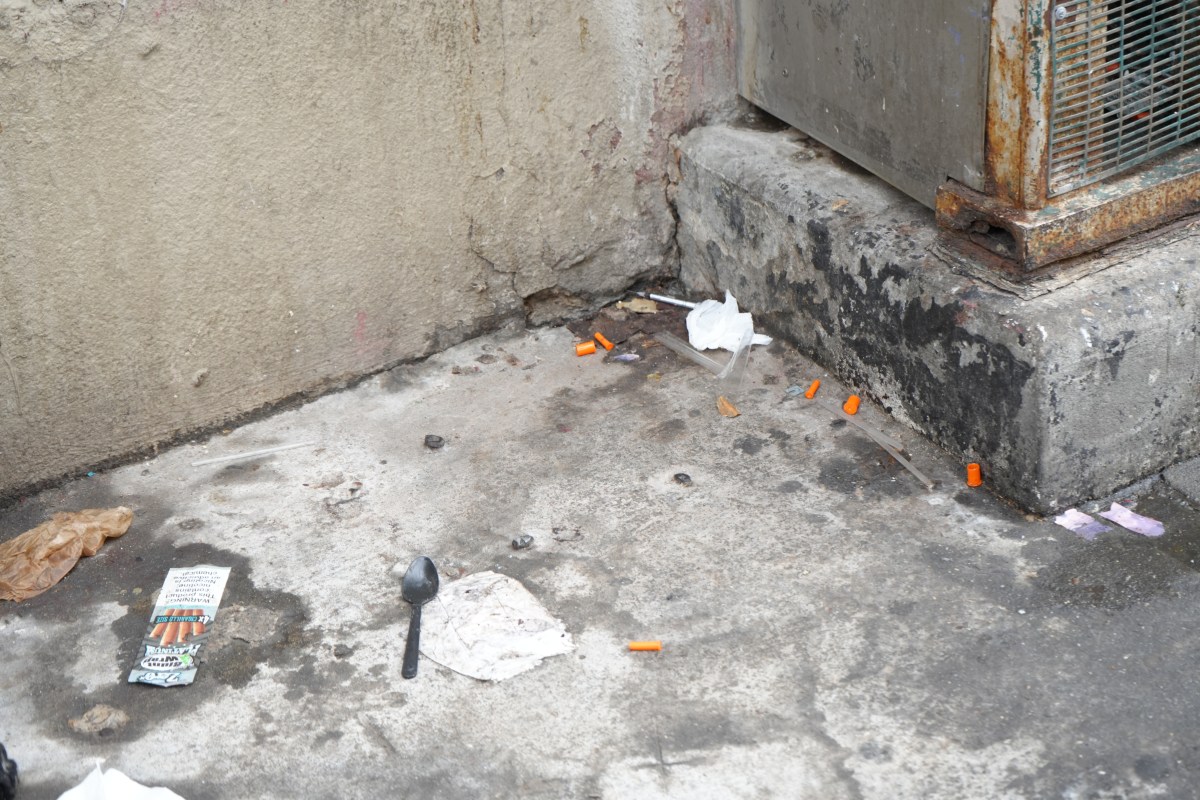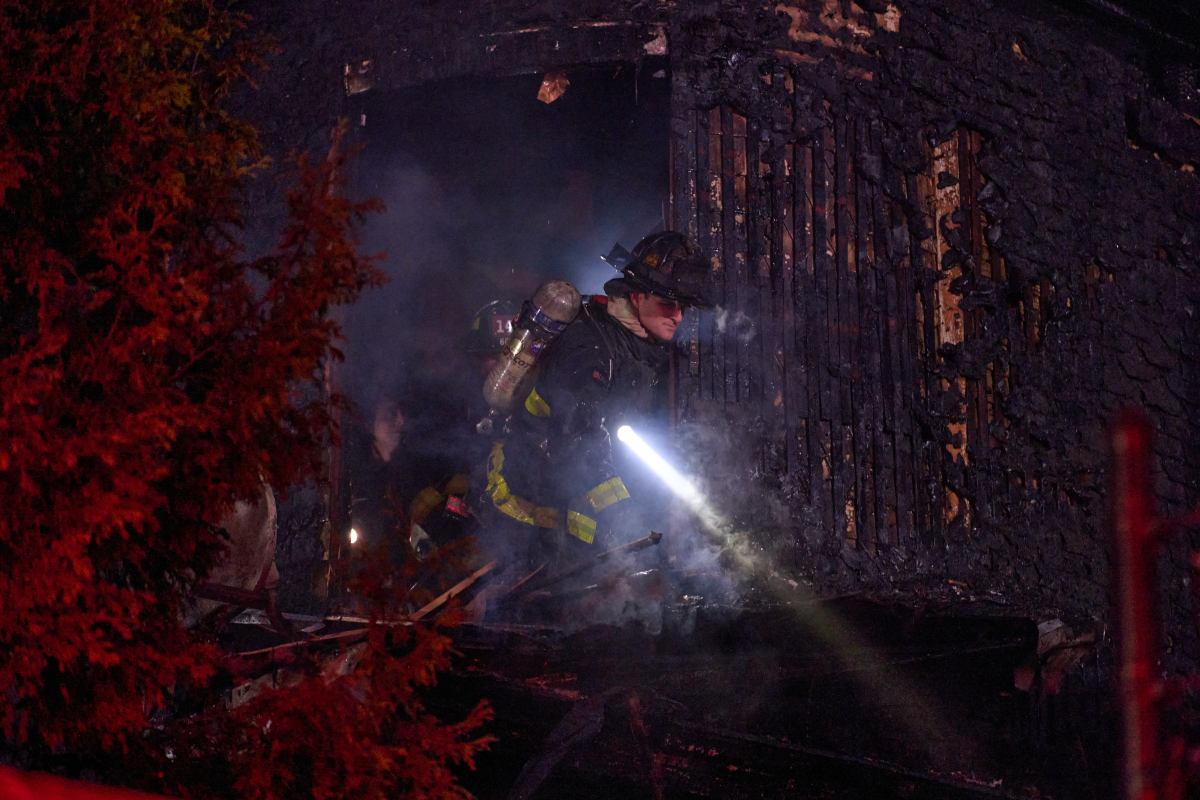
BY TEQUILA MINSKY | Crowds of art lovers sat in the middle of Gansevoort St., which was closed to traffic, in front of the Whitney Museum last Saturday.
The road was covered with a thick carpet of green grass, providing a mini-park for listening to steam-whistled tunes emanating from a calliope housed in a parade wagon at the corner of West Street for a one-day presentation/installation. Free cotton candy and popcorn were given out adding to this carnival-like atmosphere.
“Katastwóf Karavan” by Kara Walker featured her signature silhouette figures on the wagon’s sides and were combined with a 32-note steam calliope resembling those on Mississippi River steamboats.
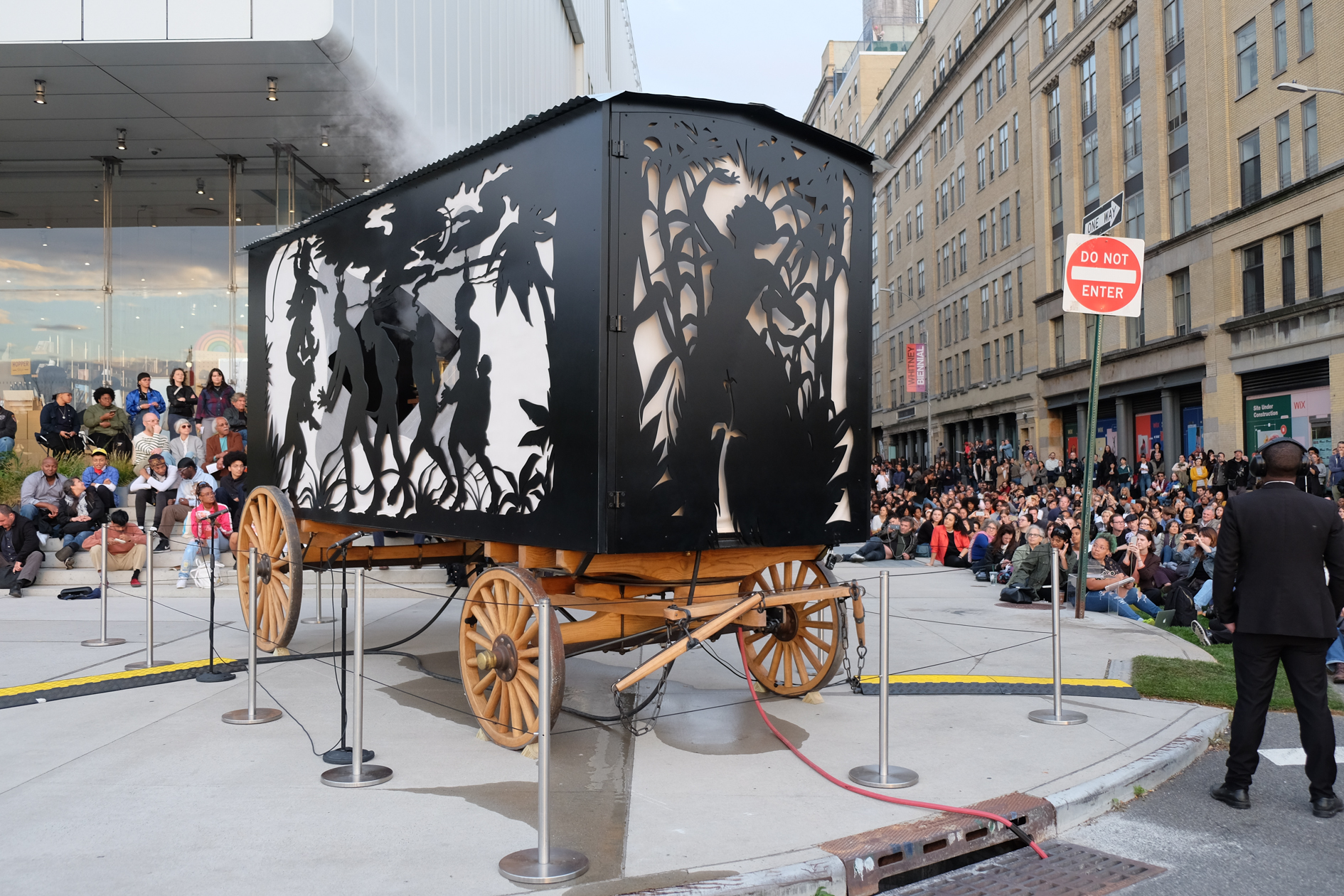
The work references 19th riverboats, Industrial Revolution-era inventions, and slavery in the American south.
On one of the longer panels, an enslaved family marches under their overseer’s wielding a whip. One short side of the wagon presents a black woman in profile in the woods, her gaze toward the sky; the other short side shows a cotton field of white bolls floating upward.
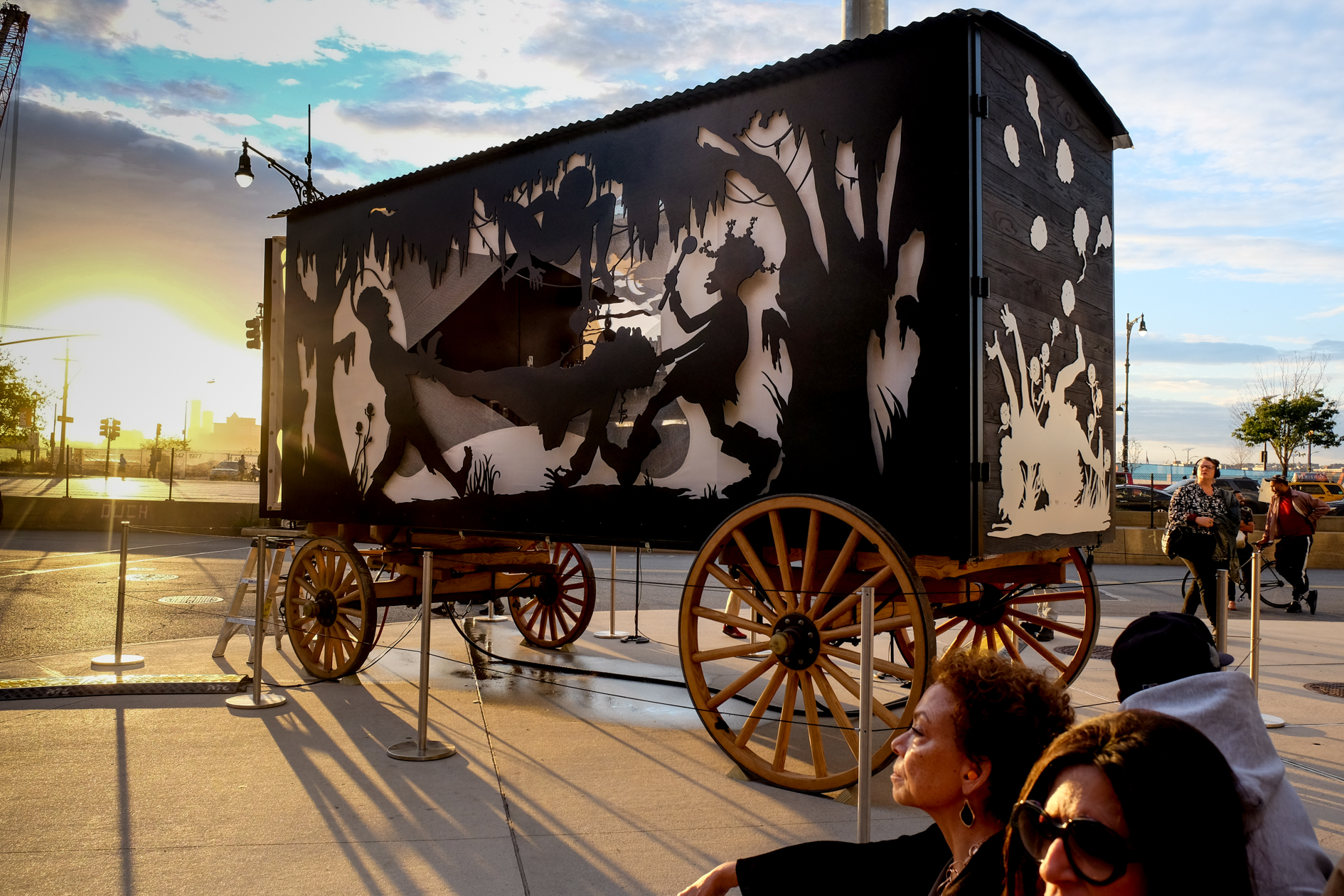
Walker programmed the custom-fabricated instrument with a compilation of songs — playing at set times during the afternoon — that represented “black protest and celebration” and included the music of Jimmy Cliff, Guy Carawan, Pete Seeger, Jimi Hendenrix, Aretha Franklin, Otis Redding, and Prince as well as traditional songs.
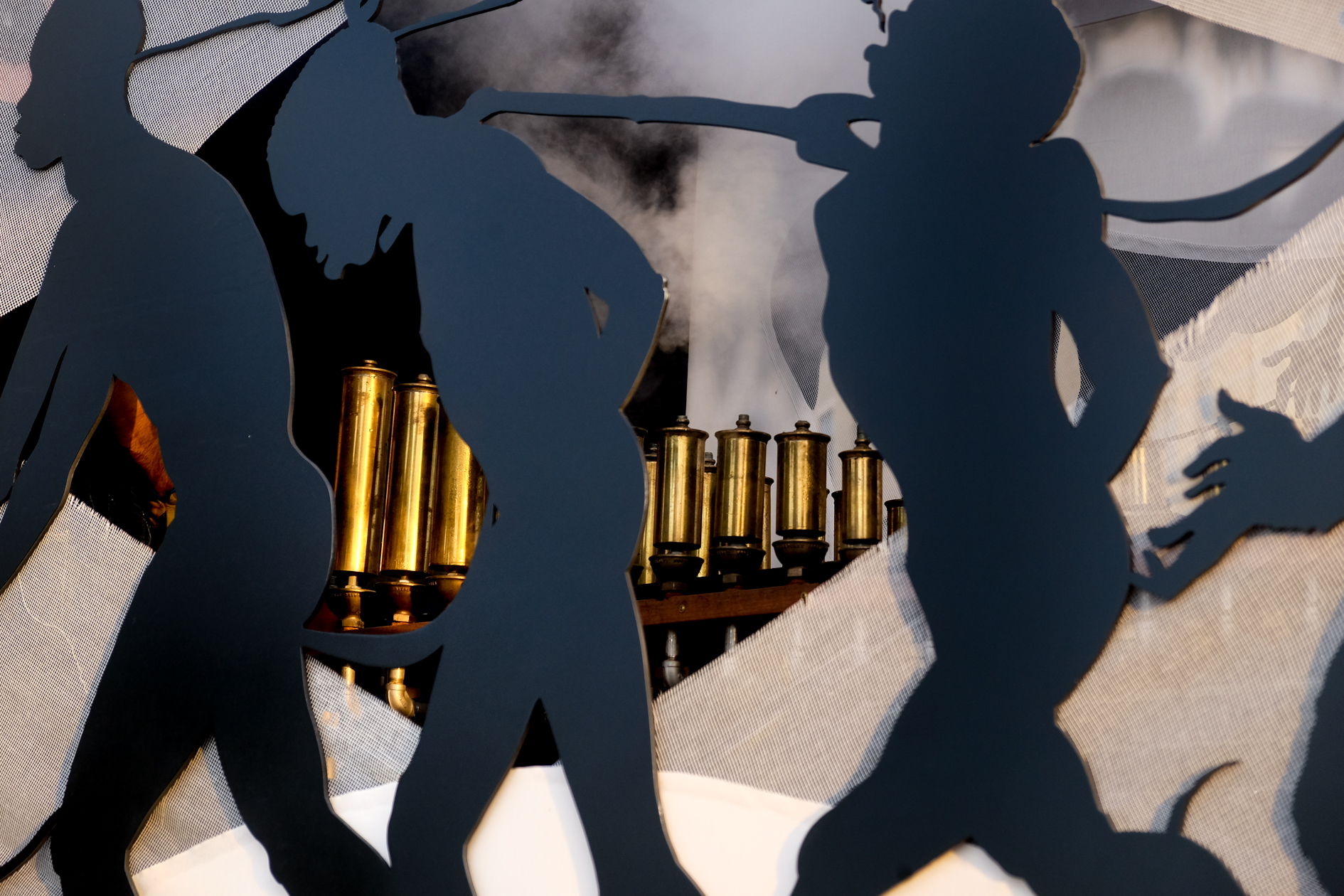
Whitney exhibiting artist Jason Moran played a keyboard that activated the steam pipes until the event wrapped up at 6 p.m.
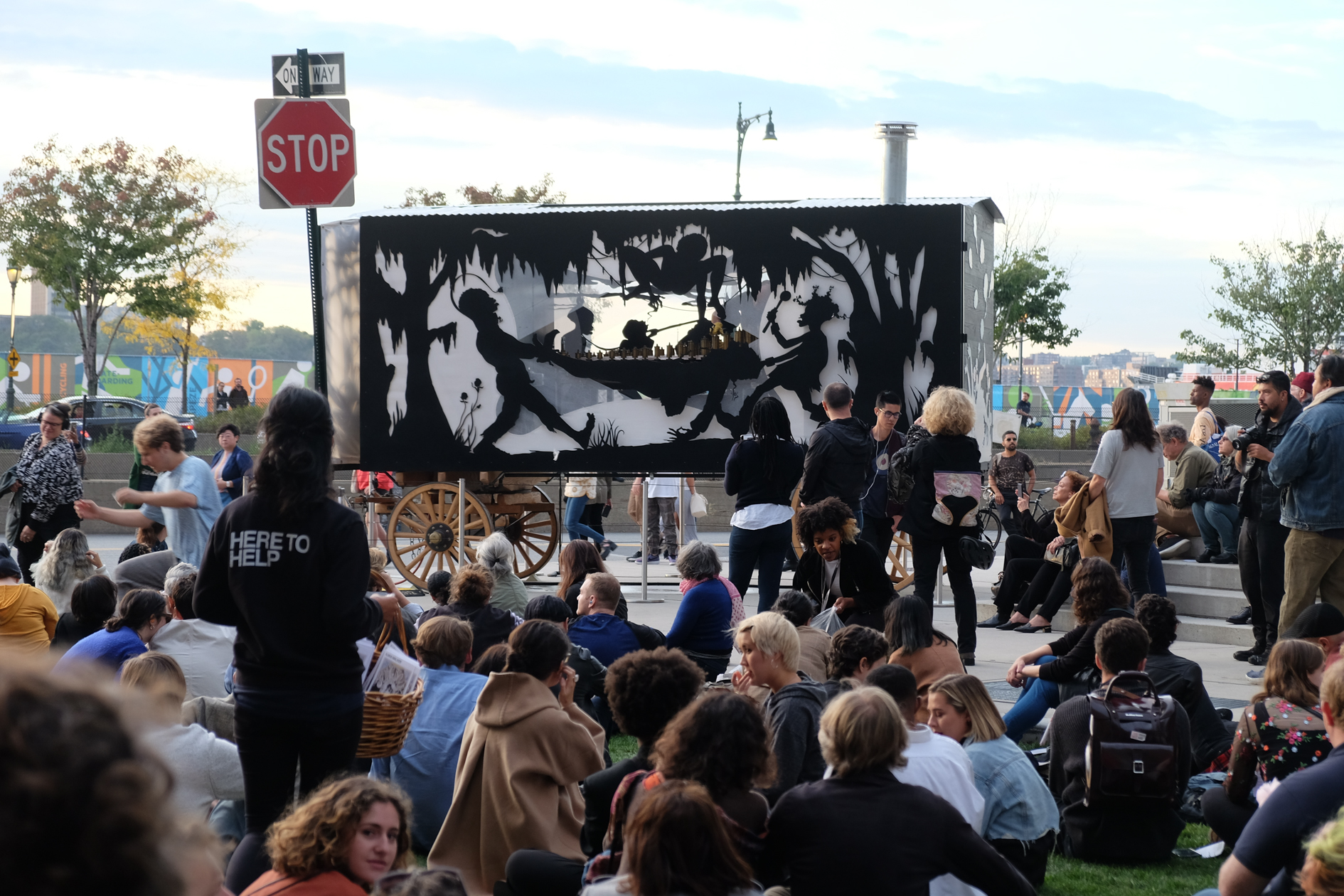
The “Katastwóf Karavan” originally showed as a commissioned site-specific work at the Mississippi River Trail in New Orleans in February 2018. Its “Katastwóf” title is Haitian Creole for “catastrophe,” and refers to the violent and dehumanizing experiences for the slaves.

























